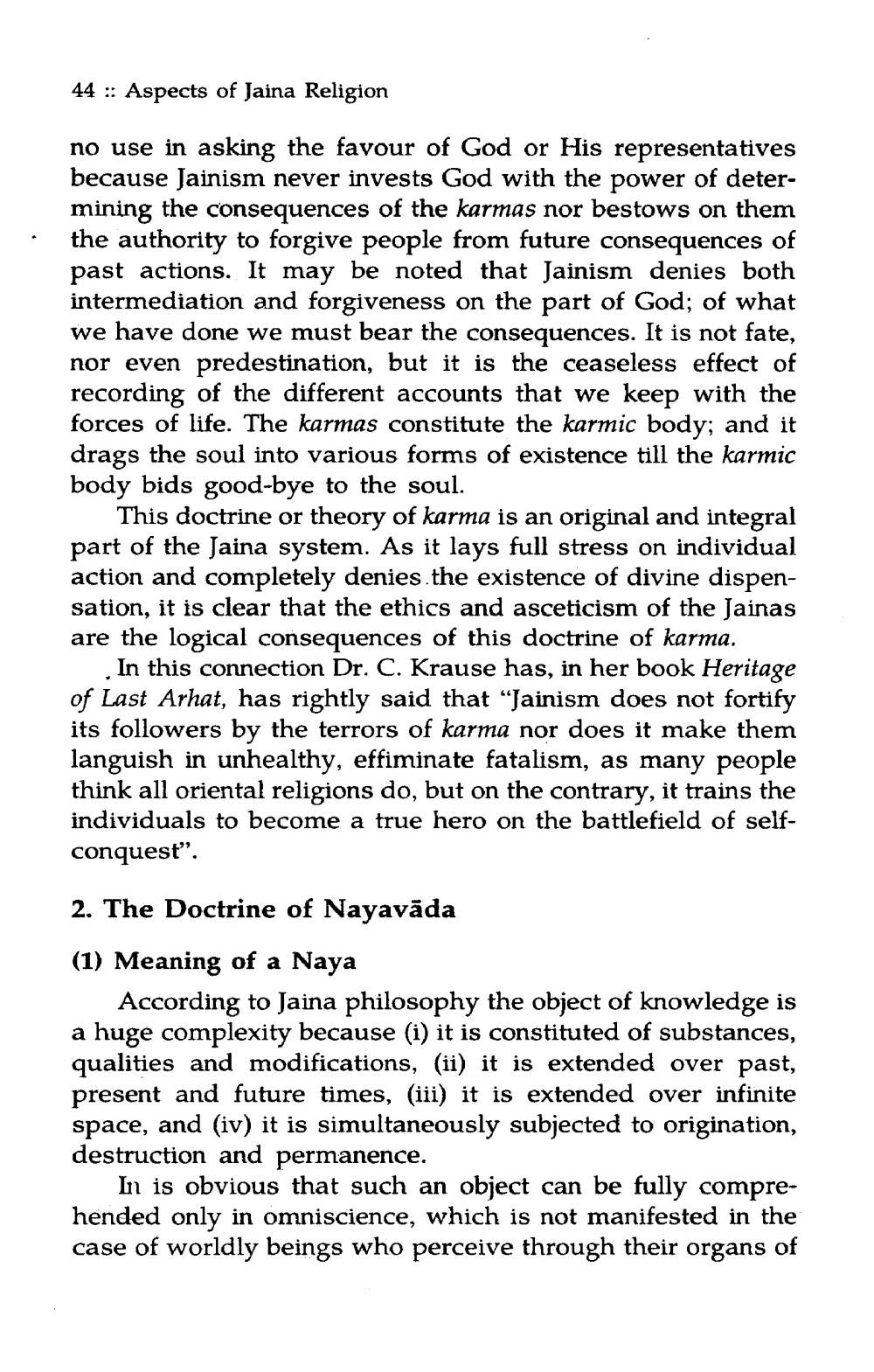________________
44: Aspects of Jaina Religion
no use in asking the favour of God or His representatives because Jainism never invests God with the power of determining the consequences of the karmas nor bestows on them the authority to forgive people from future consequences of past actions. It may be noted that Jainism denies both intermediation and forgiveness on the part of God; of what we have done we must bear the consequences. It is not fate, nor even predestination, but it is the ceaseless effect of recording of the different accounts that we keep with the forces of life. The karmas constitute the karmic body; and it drags the soul into various forms of existence till the karmic body bids good-bye to the soul.
This doctrine or theory of karma is an original and integral part of the Jaina system. As it lays full stress on individual action and completely denies the existence of divine dispensation, it is clear that the ethics and asceticism of the Jainas are the logical consequences of this doctrine of karma.
In this connection Dr. C. Krause has, in her book Heritage of Last Arhat, has rightly said that "Jainism does not fortify its followers by the terrors of karma nor does it make them languish in unhealthy, effiminate fatalism, as many people think all oriental religions do, but on the contrary, it trains the individuals to become a true hero on the battlefield of selfconquest".
2. The Doctrine of Nayavāda
(1) Meaning of a Naya
According to Jaina philosophy the object of knowledge is a huge complexity because (i) it is constituted of substances, qualities and modifications, (ii) it is extended over past, present and future times, (iii) it is extended over infinite space, and (iv) it is simultaneously subjected to origination, destruction and permanence.
In is obvious that such an object can be fully comprehended only in omniscience, which is not manifested in the case of worldly beings who perceive through their organs of




